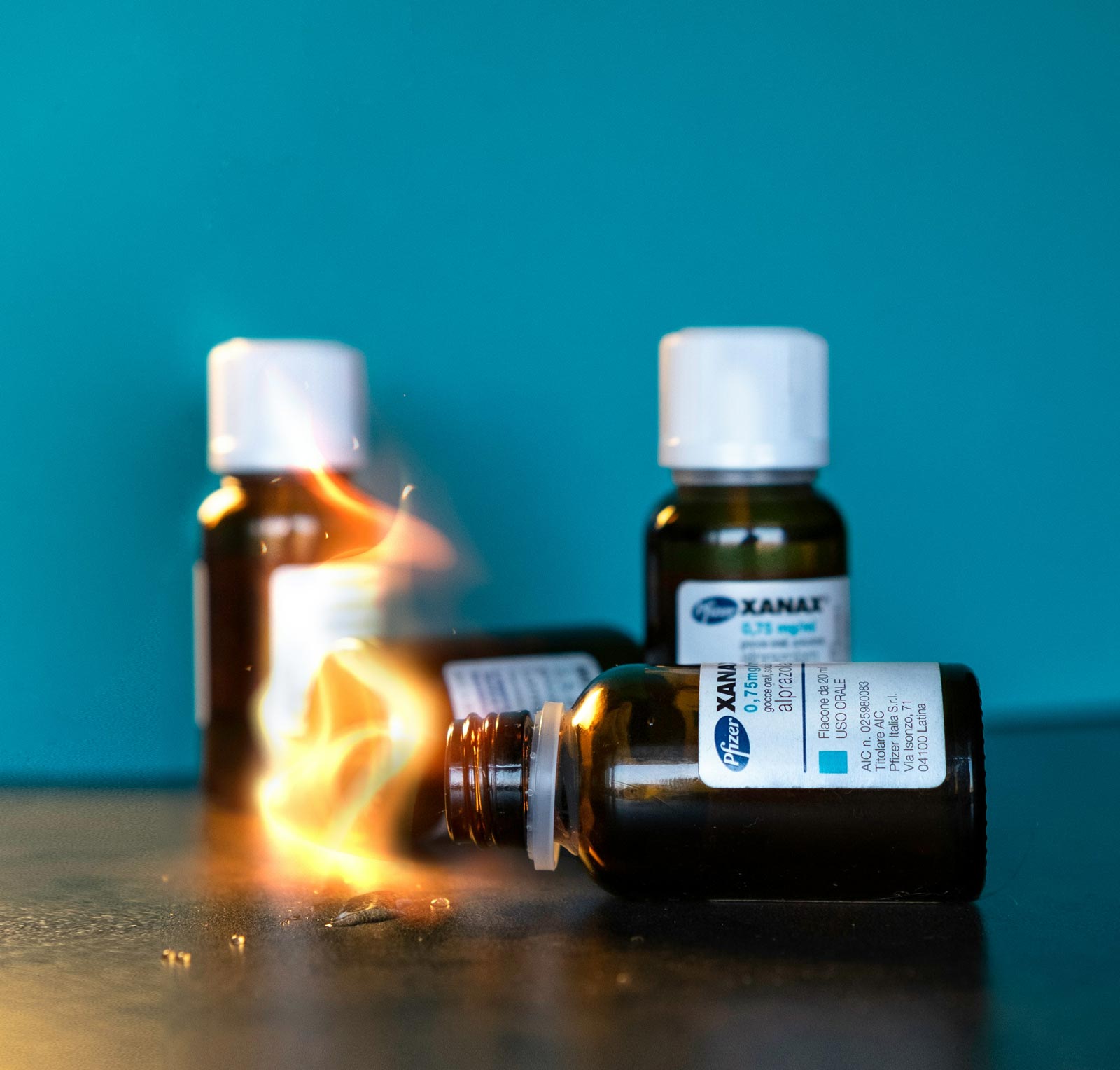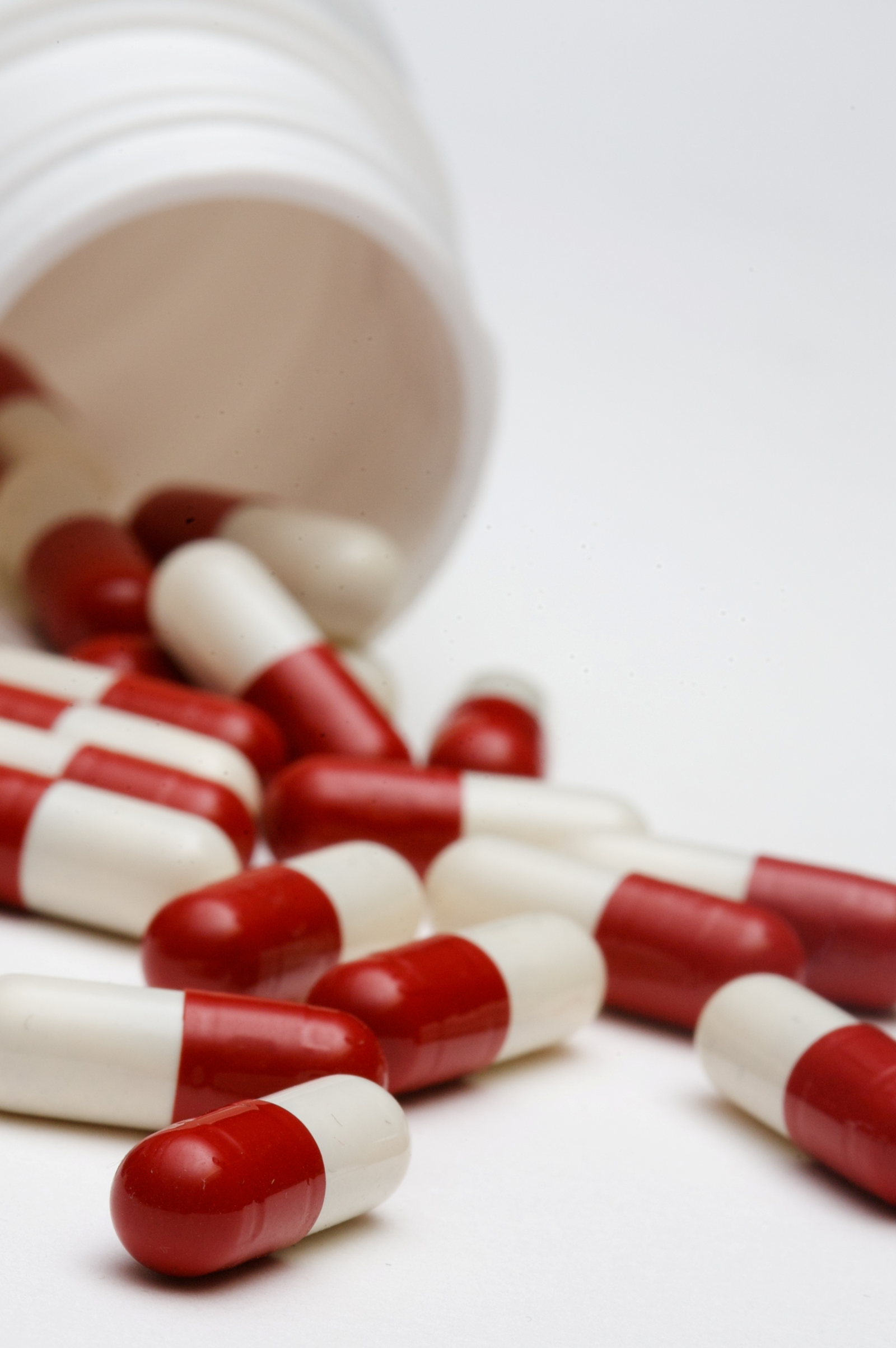Vyvanse and Adderall are central nervous system stimulant medications that are approved to treat attention deficit hyperactivity disorder (ADHD). Adderall is mixed amphetamine salts, while Vyvanse only contains one amphetamine salt. However, there are other differences between them to be aware of.

There Is A Better Way To Live. It's Time To Get The Help You Deserve.
Amphetamine Withdrawal
Adderall and Vyvanse can cause dependence when taken for prolonged periods. This occurs when the body becomes used to the presence of a medication and needs it to function. If you stop taking it suddenly, withdrawal occurs.
Physical dependence isn’t an addiction on its own, but it can be an indicator of a substance use disorder. If you’ve taken Adderall or Vyvanse for a long time or misused it and stopped, you may experience withdrawal symptoms like:[11]
- Depression
- Irritability
- Mood changes
- Sleep problems
- Unusual fatigue
- Nausea
- Stomach pain
- Vomiting
Because of the potential for dependence and withdrawal, you mustn’t quit your stimulant medication cold turkey. These drugs must be tapered to reduce the dose or stop taking them safely, which should be done under the guidance of your doctor.
Amphetamine Abuse and Addiction
An addiction to Adderall or Vyvanse is a stimulant use disorder. The criteria for a stimulant use disorder in the Diagnostic and Statistical Manual of Mental Disorders (DSM-5) include:[12]
- Taking more of a stimulant than intended
- Experiencing cravings for a stimulant
- Continued use of a stimulant despite mental and physical problems
- Failing to fulfill responsibilities at work, home, or school because of stimulant use
- Spending a lot of time obtaining, using, or recovering from stimulant use
- Taking stimulants in high-risk situations
- Unsuccessful attempts to stop or reduce stimulant use
Treating Stimulant Use Disorder
Stimulant use disorder can be difficult to overcome, especially if it begins from a legitimate prescription used to treat ADHD or another condition. Both the addiction and the underlying condition must be treated for success.
The first step in treating stimulant use disorder is often medical detox. This setting provides a medical team to monitor your health, reduce the severity of withdrawal symptoms, and keep you as safe and comfortable as possible while the drug clears your system.
Detox can help with withdrawal, but it’s not an addiction treatment on its own. After detox, it’s important to enter an addiction treatment program to address the emotional and mental factors in addiction, including ADHD, narcolepsy, or other conditions that may require stimulant medications. Whether inpatient or outpatient, addiction treatment relies on a combination of therapies like talk therapy, group counseling, behavioral therapies, support groups, and other modalities.
Vyvanse vs. Adderall: Which Is Right for You?
Vyvanse and Adderall are similar drugs with similar mechanisms of action, but some key differences may make one a better choice than the other. Discuss your options with your doctor, including your medical history, any substance abuse history, other medications or substances you use, and your treatment goals.
Frequently Asked Questions
Is Vyvanse More Intense Than Adderall?
Little research exists on the effectiveness of Vyvanse and Adderall. However, some studies suggest that Adderall may be more effective, while others suggest that Vyvanse is more effective. In addition, people respond to medications differently.
Should I Switch from Adderall to Vyvanse?
Vyvanse may have milder side effects than Adderall and a lower abuse potential, but it’s still a powerful stimulant drug. If you feel that Adderall isn’t helping your symptoms, speak to your doctor about alternatives.
What Happens If You Take Vyvanse without ADHD?
If someone without ADHD takes Vyvanse, Adderall, or other ADHD medications, it may cause increased energy, feelings of euphoria, talkativeness, anxiety, irritability, and a lower need for food and sleep. Some people take stimulant ADHD medications as a study aid, but there’s no evidence that it improves academic performance.
Sources
[1,2] WebMD. (n.d.). Vyvanse vs. Adderall: Similarities and differences. WebMD. Retrieved from https://www.webmd.com/add-adhd/vyvanse-adderall-difference on 2024, September 11.
[3] Adderall: Uses, dosage, Side Effects & Safety Info. Drugs.com. (n.d.-a). Retrieved from https://www.drugs.com/adderall.html#side-effects on 2024, September 11.
[4]Vyvanse uses, dosage, side effects & warnings. Drugs.com. (n.d.-m). Retrieved from https://www.drugs.com/vyvanse.html#side-effects on 2024, September 11.
[5,6] WebMD. (n.d.). Vyvanse vs. Adderall: Similarities and differences. WebMD. Retrieved from https://www.webmd.com/add-adhd/vyvanse-adderall-difference on 2024, September 11.
[7] Adderall vs vyvanse – what’s the difference between them? Drugs.com. (n.d.-b). Retrieved from https://www.drugs.com/medical-answers/adderall-vs-vyvanse-3013810/ on 2024, September 11.
[8] AC;, F. K. (n.d.). Adderall® (amphetamine-dextroamphetamine) toxicity. Topics in companion animal medicine. Retrieved from https://pubmed.ncbi.nlm.nih.gov/23796480/#:~:text=Clinical%20signs%20of%20Adderall(%C2%AE,of%20neutrophils%2C%20and%20mild%20thrombocytopenia on 2024, September 11.
[9] Spiller, H. A., Hays, H. L., & Aleguas, A. (2013, June 12). Overdose of drugs for attention-deficit hyperactivity disorder: Clinical presentation, mechanisms of toxicity, and management – CNS drugs. SpringerLink. Retrieved from https://link.springer.com/article/10.1007/s40263-013-0084-8 on 2024, September 11.
[10] Swisher, A. R., Pham, R., Theodory, B., Valiani, S., & Gowda, N. (2022). Rhabdomyolysis and the Use of Low-Dose Amphetamine. Cureus, 14(7), e27357. Retrieved from https://doi.org/10.7759/cureus.27357 on 2024, September 11.
[11] WebMD. (n.d.-a). Adderall withdrawal: Symptoms, duration, remedies, and prevention. WebMD. Retrieved from https://www.webmd.com/add-adhd/adderall-withdrawal on 2024, September 11.
[12] Stimulant use disorder. PsychDB. (2022, November 30). Retrieved from https://www.psychdb.com/addictions/stimulants/1-use-disorder on 2024, September 11.


